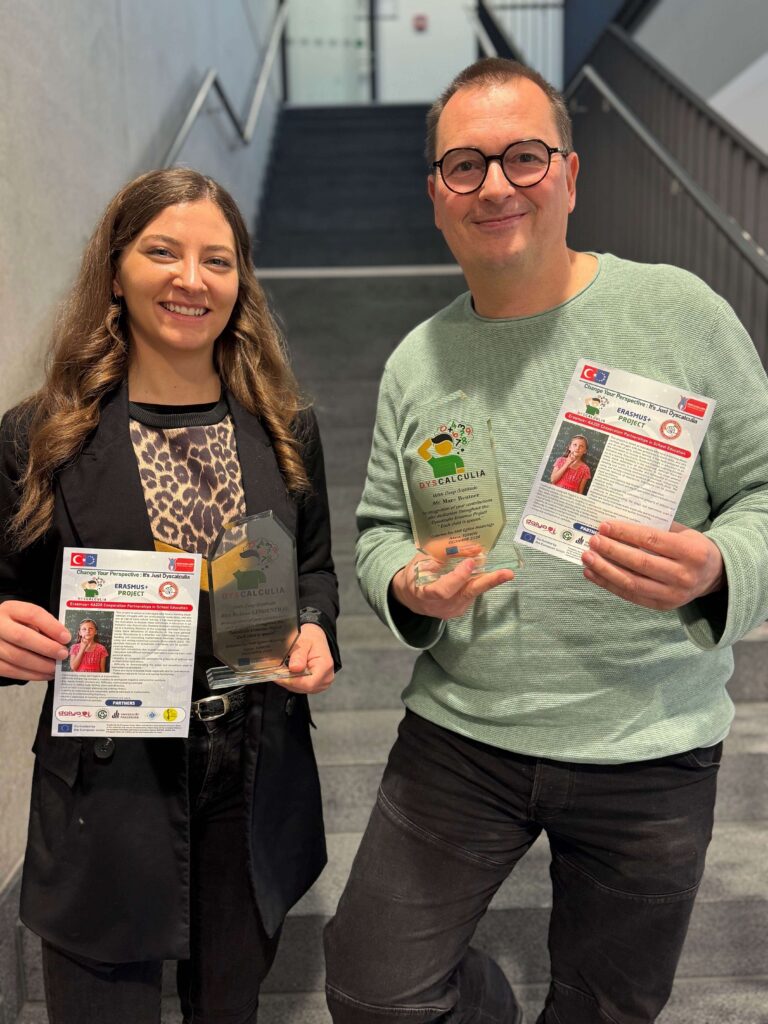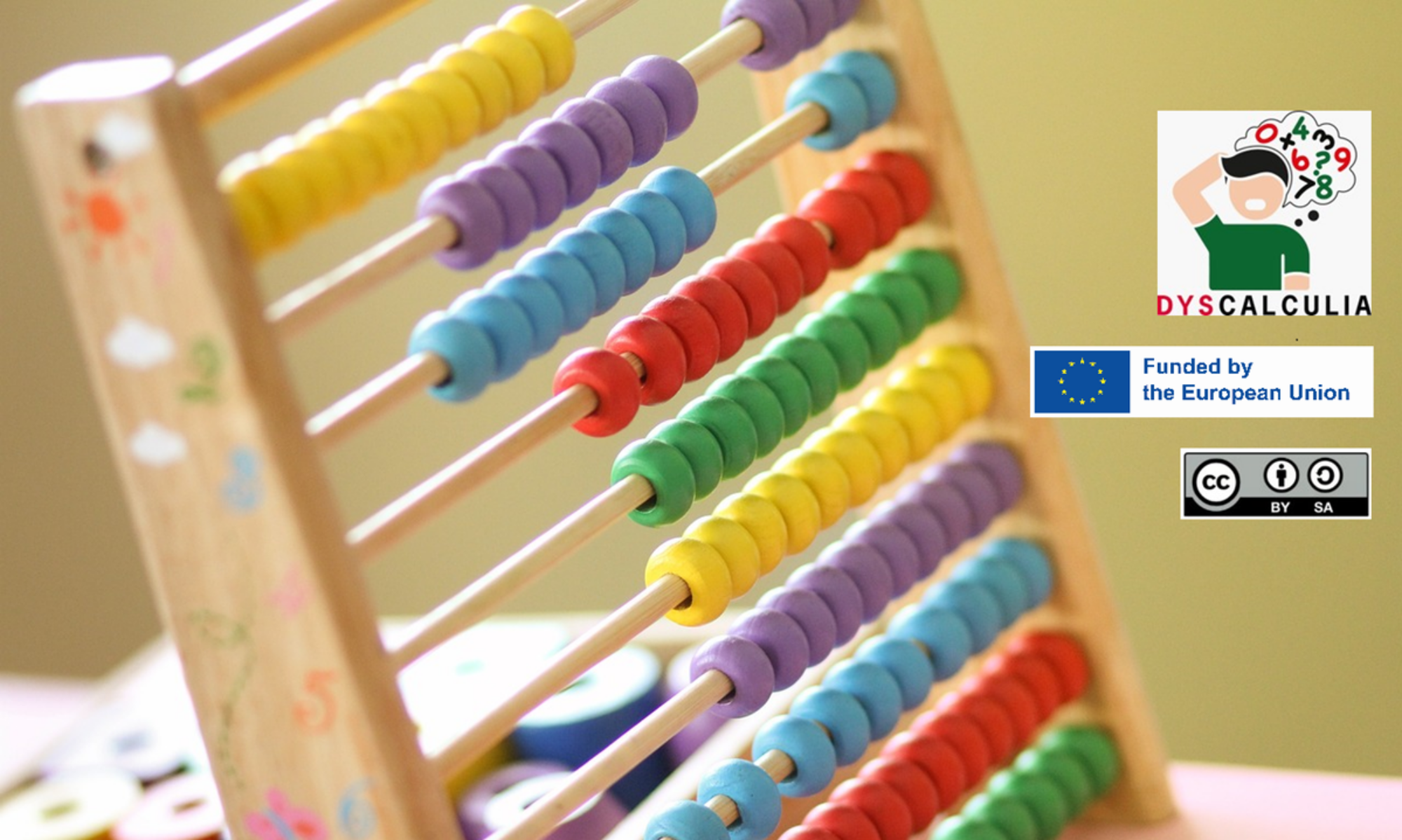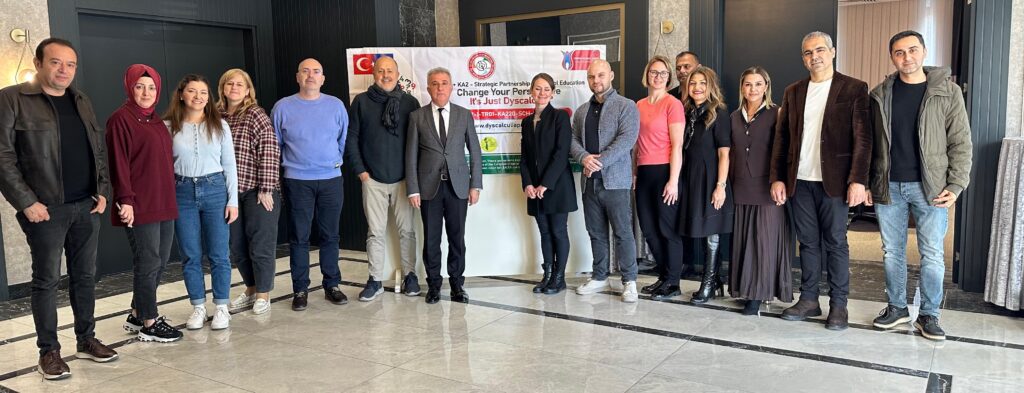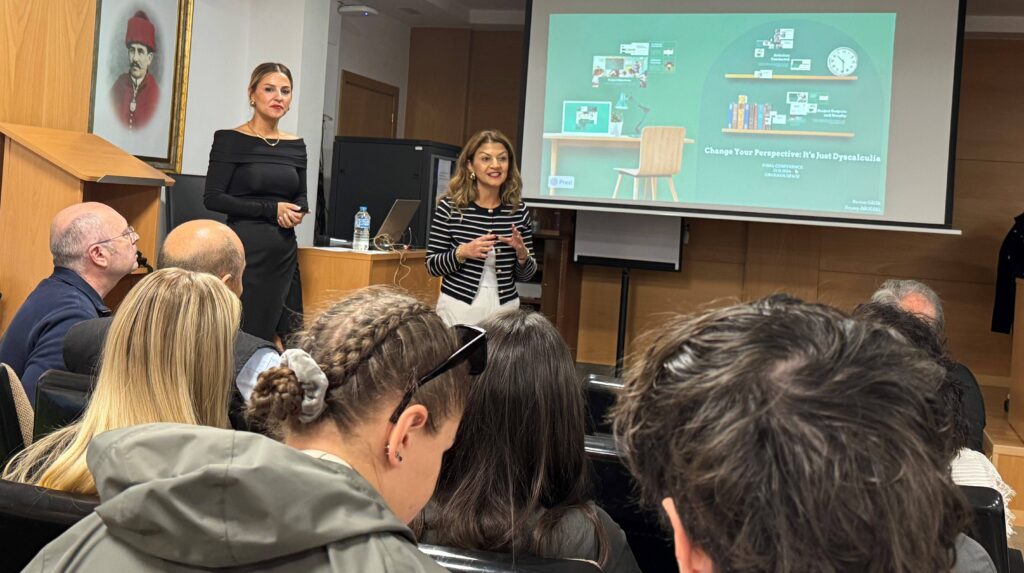We received an award as a thank-you for our good work on the project.

We would also like to take this opportunity to express our sincere thanks for the good co-operation!
The project partners have produced such great results which we are very grateful for. Fortunately, we could be part of this process and have been able to contribute to the awareness of dyscalculia and hopefully give many people an impulse to engage more with this topic and the support of dyscalculic students.



